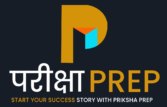PSYCHOLOGY
| Concept of development and its relationship with learning |
| Principles of the development of children |
| Influence of Heredity & Environment |
| Socialization processes: Social world & children (Teacher, Parents, Peers) |
| Piaget, Kohlberg and Vygotsky: constructs and critical perspectives |
| Concepts of child-centred and progressive education |
| Critical perspective of the construct of Intelligence |
| Multi Dimensional Intelligence Language & Thought |
| Gender as a social construct; gender roles, gender-bias and educational practice |
| Individual differences among learners, understanding differences based on diversity of language, caste, gender, community, religion etc. |
| Distinction between Assessment for learning and assessment of learning; School-Based Assessment, Continuous & Comprehensive Evaluation: perspective and practice |
| Formulating appropriate questions for assessing readiness levels of learners; for enhancing learning and critical thinking in the classroom and for assessing learner achievement. |
| Addressing learners from diverse backgrounds including disadvantaged and deprived |
| Addressing the needs of children with learning difficulties, ‘impairment’ etc. |
| Addressing the Talented, Creative, Specially abled Learners |
| How children think and learn; how and why children ‘fail’ to achieve success in school performance. |
| Basic processes of teaching and learning; children’s strategies of learning; learning as a social activity; social context of learning. |
| Child as a problem solver and a ‘scientific investigator’ |
| Alternative conceptions of learning in children, understanding children’s ‘errors’ as significant steps in the learning process. |
| Cognition & Emotions |
| Motivation and learning |
| Important theories. Piaget, Kohlberg Vygotsky , Sigmond Freud, Skinner ,Thorndike , Bruner , Pavlov , Erickson , Spearman , Howard Gardener , Alfred Binet & Lewis Terman, Alfred Adler , Watson , Tolman , Robert Sternberg , JM Cattell , Noam Chomsky , Salovey & Mayer, Benjamin lee , Albert Bandura , Weschler , Joseph Renzulli , louis Thurston |
| Factors contributing to learning – personal & environmental |
ENGLISH
Synonyms, Antonyms, Correct spelt, one word, Active and passive voice, Number- Gender, Articles, opposite words, conjunctions, Direct and indirect speech, Rearrange words, Idiom, Preposition.
SCIENCE
POLITICAL SCIENCE
- Constitution, Preamble, Parts of constitution, Sources of Indian constitution, articles of Indian constitution, Fundamental rights, Fundamental duties, Directive principles, states reorganization commission, President, wise-president, Parliament of India, Prime Minister, CAG, AG, Judiciary of India, Chief Minister, Governor, Finance Commission, Election commission, NITI Aayog, Panchayati raj system, Official language, artcle-370 and 37(a), National symbols, Financial committees of parliament, constitutional amendment.
HISTORY
Indus valley civilization, Vedic period, Maruya period, Buddhism, Jainism, Magadh rajya, Alexander, shung dynasty, Satavahana dynasty, Indo greek dynasty, shak dynasty, kushan Empire, Gupta empire, Pushyabhuti dynasty, chola dynasty, Rashtrakuta dynasty,
Arab invasion of India, Delhi sultanate, Mughal Empire, Maratha Empire, Vijayanagara Empire, Sikh empire,
- Arrival of British companies, Indian rebellion of 1857, Governor General, Major freedom movement, Mahatma Gandhi, congress session, Organization during Independence,
GEOGRAPHY
Solar system, internal structure of Earth, lithosphere (rocks, volcano, earthquakes, mountains, plateau, field), continent, Hydrosphere, Atmosphere, rivers, lakes, waterfall, type of soil, agriculture, Mineral resources, canals of India/world, Desert of India /world, Straits of India / world, Tribes of India/world, Island, capital and currency, National park, seaport.
- General awareness including HP, Current affairs and environment studies
